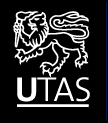Michael Melnychuk, Jeannette Banobi, and Ray Hilborn
University of Washington
IMAS Sandy Bay seminar room
Friday 13th January, 13:00 – 13:50
Abstract
Much attention has been given recently to the status of marine fish and shellfish populations around the world that are caught in commercial fisheries, but few explanations have been given as to why some populations are in better shape than others ecologically or why some fisheries are in better shape socio-economically. Management systems are complex, involving multiple objectives and many stakeholders, and are also highly variable in their design and operation, including scientific research programs, strategies to limit catch, regulations and enforcement, costs incurred by governments and industry, and allocation of catches among sectors and gear types. This variability likely explains why management objectives of sustainable harvest are met in some fisheries more consistently than others. We aim to quantify the variability in management systems around the world, and evaluate which particular attributes tend to lead to more successful outcomes for fish populations and fisheries. We consider several measures of success, covering biological, economic, and social dimensions of fisheries.
Working towards a global analysis, we present initial results for fish and invertebrate stocks and fisheries from the west coast of North America. We drew stock status data from the recently-compiled RAM Legacy Stock Assessment Database, and conducted interviews with fishery managers and industry representatives to compile a database of socio-economic management attributes. First, we examined the trade-offs between conservation, economic, and social objectives of fisheries, and identified particular management attributes that influenced the nature of these trade-offs. We observed a strong set of interacting objectives involving quota adherence, economic return on management investment, and employment intensity. As hypothesized, a win-win relationship was observed for conservation and economic objectives, but each of these traded off with social objectives. Second, we quantified the effect of several management attributes on the recent fishing pressure and biomass of groundfish stocks relative to target reference points. Surprisingly, ex-vessel landed prices of groundfish stocks had little effect on adherence to management targets. Regional differences were greater than observed effects of any particular management covariate across all regions. Finally, we propose that harvest control rules (i.e., a management strategy for altering catches in response to changes in abundance of targeted species) represent the capacity for adaptive change in fishery management practices in response to species changes in abundance and distribution that are predicted to arise through global climate change.


